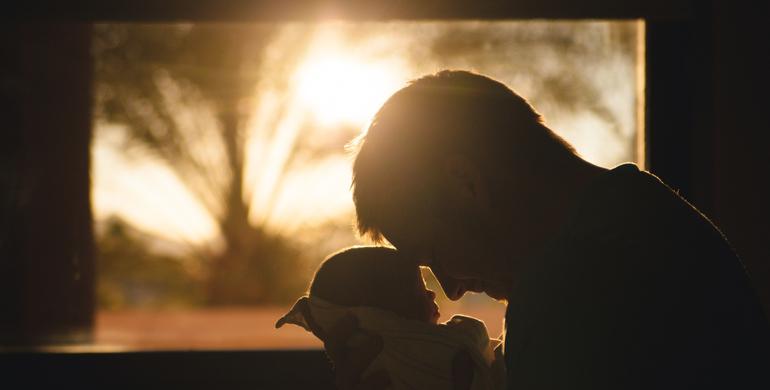The comments follow a request by Bridgend-based charity Fathers Reaching Out, for all new fathers to have the same mental health checks as mothers.
Traci Lowden-Stoole, Care for the Family's national representative from the Isle of Man told Premier's News Hour the charity was aware of the negative effects difficult or traumatic births can have on men.
She said: "Having a baby affects both parents and at Care for the Family we've been helping families for over 30 years.
"One of the key issues is the mother normally in most circumstances has a mummy chip that comes on when she finds out that she's pregnant. So she is preparing for this birth the whole time she's pregnant.
"Baby is telling her when she can go to the toilet, what food she can eat...for nine months, whereas dad only really gets a glimpse of actually how it's going to change his life once it's come into the home."
The National Institute for Health and Care Excellence (NICE) said there were no plans to change its guidelines on the issue, according to the BBC.
Currently, all new mothers' well-being is gauged using the Edinburgh Postnatal Depression Scale - a questionnaire which asks women to assess their mental state.
At least 10 per cent of women experience some degree of anxiety or depression after giving birth but men also can experience the baby blues.
Lowden-Stoole highlighted the importance of parents sticking together both during and after pregnancy.
She explained: "Your bad relational habits will come to the fore. So you will be at each other's throats about who's going to change the nappy or whose turn it is for what or you could be thinking the worse or you could just totally opt out of the conversation - opt out of everything altogether.
"It's really important for mum as well to keep dad involved in the whole process and to be aware that he only gets two weeks of parenting ng leave whereas she gets as much as she has required or asks for."
Williams will address politicians and perinatal mental health experts at the House of Commons on 20 November at an "awareness-raising" event.
Lowden-Stoole told Premier there are practical steps parents can make to help counter postnatal depression.
She said: "We really believe in vulnerability and that by sharing our stories that we actually help each other and we have peer-to-peer support.
"One of our first rules of parenting in all our parenting classes is just to be aware that it's not just me. Parenting can make us so emotional. We need to understand that it's not just us, we are not all on our own and to actually find other parents like ourselves to actually share our experiences with.
Listen to Traci Lowden-Stoole speaking with Premier's Eno Adeogun:





